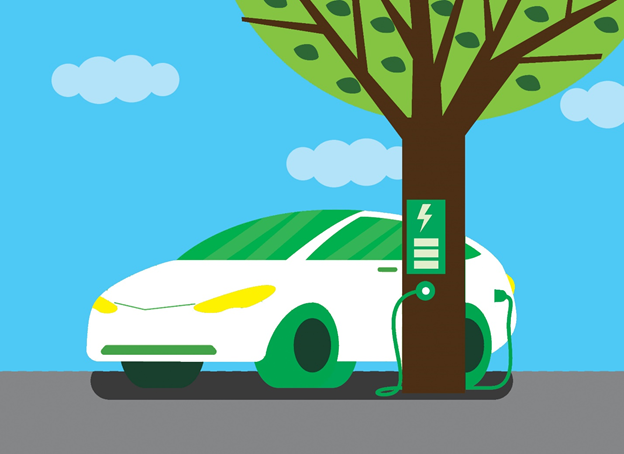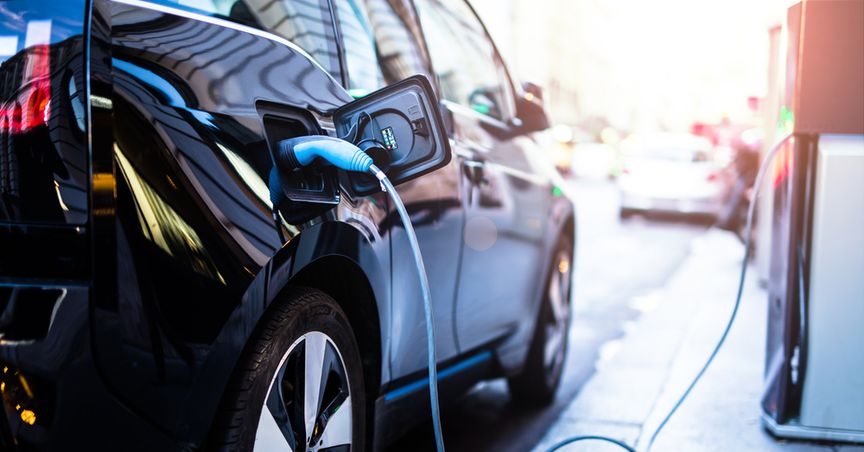Summary
- Electric vehicles (EVs) are the future of the world as they boast low carbon emissions and low maintenance costs.
- The environmentally conscious New Zealand Government has allocated numerous funds and has outlined a roadmap for the country to become carbon neutral by 2050.
- There is an influx of electric cars in the country, right from high-end EVs to pocket-friendly ones.
As the world economy hits a pivotal juncture where nature is pierced with a record pollution, dramatic climb in global temperatures, and harsh climatic changes, countries across the globe are making umpteenth efforts to reduce toxic emissions.

Source: Copyright © 2021 Kalkine Media
In spite of numerous efforts, greenhouse gas emissions are notoriously rising. As per reports, global carbon dioxide emissions stood at 36 billion metric tons in 2019.
This has pushed the need for electric vehicles (EVs), which are an answer for the sustainable tomorrow. These EVs are proving a boon to ensure a cleaner and greener ecology.

Source: Copyright © 2021 Kalkine Media
Are EVs environment friendly?
Environment-conscious people are propagating the increased use of electric vehicles because of numerous reasons. Though some people state that these electric vehicles are very expensive and require a long charging time, the advantages of the use of electric vehicles outnumber counterviews.
- The foremost benefit of using an EV is that it reduces carbon footprint.
- It works on electricity, which is a renewable resource unlike its gasoline-operated peers.
- They require low maintenance, thus are very sustainable in the long run.
- Though these electric cars are quite costly, but at the same time, they reflect high-quality performance.
- Moreover, electric car owners can avail tax credits.
- These electric cars make no noise as they have no engine under the hood.
- Also, after buying an EV, one does not have to worry about the ever-escalating fuel costs.
- These electric cars can be charged conveniently at home, simply plug-in car for 4-5 hours, and it is ready to move. Nowadays, many new EVs are equipped with fast-charging capabilities, which enable them to prep up within 60 minutes.
The climate-conscious NZ Government
New Zealand has already started working towards a carbon-neutral future by 2050. The NZ Government has chalked out a roadmap in this regard and has allocated an additional capital of NZ$300 million for New Zealand Green Investment Finance to support climate change mitigation and create more job opportunities in sustainable sectors.
Further, it has set aside NZ$67 million of funding that would help in reducing emissions and make government organisations carbon-free by 2025.
Moreover, efforts are being made to keep higher-emissions vehicles off the road by creating a new Low Emission Transport Fund.
Don’t Miss: Climate Change Commission delivers final report to New Zealand Government
A peek into the NZ electric vehicle market
With the influx of electric vehicles into the country, New Zealanders have become more climate-conscious and are increasingly changing their present fleet to this new-age electric battery-driven fleet. As more than 80% of NZ electricity is generated from renewable sources, these EVs emit 80% lesser toxic carbon emissions than the regular ones.
Read: Electric Vehicles Then & Now: Tracing The Near 200-Year History
At present, Aotearoa’s electric vehicle fleet majorly constitutes of light vehicles. As per reports, there were about 18,500 electric vehicles in 2019. Among them, 75% of the light EV fleet consists of pure EVs, and the remaining comprises of plug-in hybrid vehicles.
Recommended Read: Is New Zealand transport’s transition to EVs a feasible option?
Further, Wellington and Auckland had the largest ownership rate with 4.8 light EVs per 1000 people. On the other hand, the country’s West Coast region recorded the lowest ownership rate of just 0.8 light EVs per 1000 people.
Also Read: Electric Vehicles: 6 Stocks To Watch Out For in 2021 Apart From Tesla
Presently, the New Zealand car market is flooded with numerous electric vehicles, right from affordable ones to a high-end range. Some of the EVs running on NZ roads are:
- MG ZS EV costing NZ$48,990
- Nissan Leaf priced at NZ$61,990
- Renault Zoe ZE50 costing NZ$65,990
- Hyundai Ioniq priced at NZ$71,990
- Kia Niro EV EX costing NZ$77,990
- Hyundai Kona Electric priced at NZ$78,990
- BMW i3s costs NZ$87,500
- Tesla Model 3 Long Range valued NZ$92,900
- Audi e-tron 50 costs NZ$119,900
- Mercedes-Benz EQC 400 priced NZ$148,800 (Electric Art Line)
- Jaguar I-Pace S valued at NZ$149,900
- Tesla Model S Long Range $159,990
- Audi e-tron 55 Sportback costing NZ$169,900
- Jaguar I-Pace HSE valued NZ$169,900
- Porsche Taycan priced NZ$173,900
- Tesla Model X Long Range $174,990
- Porsche Taycan 4S valued at $203,900
- Tesla Model S Plaid Plus costing NZ$267,900
- Audi RS e-tron GT priced NZ$273,500
- Porsche Taycan Turbo S $366,900
Road Ahead
Apart from the initial high investment, there are plenty of merits for owning an electric car, especially when the health of the environment is of utmost importance.
Unlike yesteryears, when these electric cars were priced very high and out of the reach of the common man, manufacturers these days are rolling out electric cars, which are now affordable and provide a wide range of options. With a gush of a wide range of EVs into its economy, Aotearoa will soon be ready to dive into a carbon-neutral future.
Read: Will EV Market Help New Zealand Reach Zero Carbon Level?





